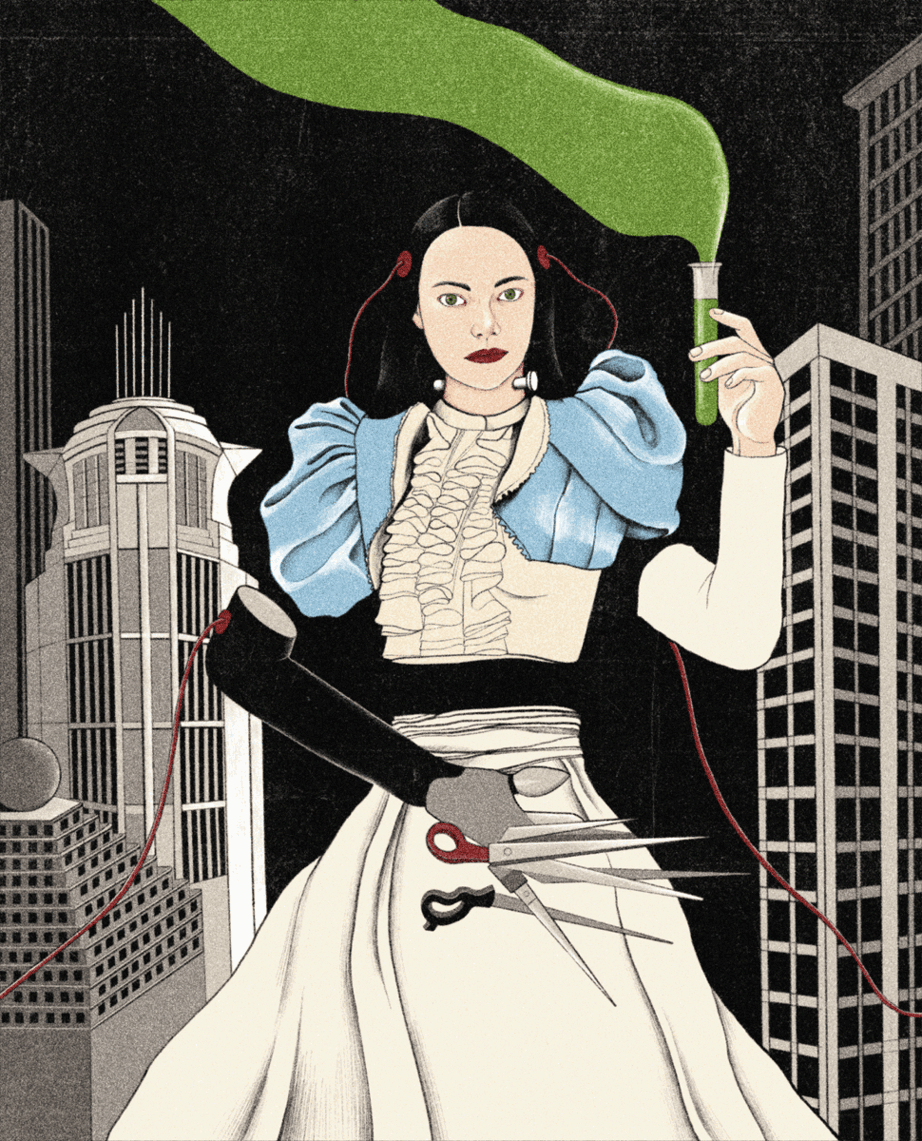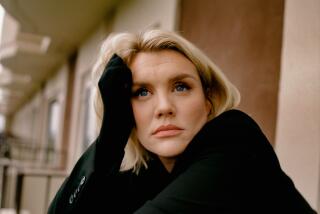Review: ‘Book of You’ echoes a violent Grimm fairy tale for modern times
Although they are considered children’s stories today, fairy tales were originally written for adults, with significant contributions made by German, Danish and French writers like the Brothers Grimm, Charles Perrault and Hans Christian Andersen. Contemporary examples — Angela Carter’s darkly erotic stories in 1979’s “The Bloody Chamber” and Helen Oyeyemi’s evocative reimagining of the Snow White story in the recent “Boy, Snow, Bird” — are remarkable not for their literal reimagining of these well-known tales but for their inversion, and sometime subversion, of familiar themes and symbols to create something strange yet wondrous on their own terms.
Into this tradition comes Claire Kendal with her debut novel, “The Book of You.” Kendal’s heroine, Clarissa Bourne, is a polite, well-mannered 38-year-old university administrator in Bath, England. A former Ph.D. candidate whose area of study was fairy tales, Clarissa is healing from a failed affair with a married department colleague who has moved on to a professorship at Cambridge. As the novel opens, Clarissa is literally writing for her life in the form of journal entries in a diary that record her every encounter with Rafe Solmes, another lecturer in the English department.
Although they barely spoke at work, Rafe has begged Clarissa to attend a reading and celebration of his book on fairy tales at a local bookstore. Ever polite, Clarissa relents, and also accepts the odd-tasting glasses of red and white wine Rafe presses on her and his gallant offer to walk her home. But unlike the fairy tales, Rafe Solmes is no Prince Charming, something that will be clearer to the reader than trusting Clarissa.
Clarissa’s memory of that night is unaccountably fractured, but Rafe’s behavior afterward — and her badly bruised body — leave no doubt that something more unsavory than a sexual encounter occurred. As Rafe’s unwanted phone calls, texts and surprise appearances near her home escalate, Clarissa resolves to keep a journal, creepily addressed to her stalker, that documents his every move to convince the police he’s a threat: “From now on I’ll take taxis to the station in the mornings and check through the windows to make sure you aren’t following. Next time I’m faced with you, I’ll consider the long term and obey the leaflets. I’ll refuse to speak, or I’ll tell you for the zillionth time … to leave me alone.”
While Clarissa’s feelings toward Rafe waver between pity and fearful revulsion, she’s not a complete naïf — she’s obtained leaflets provided by a local helpline that tell her “eight women die every month in England as a result of domestic abuse,” and “three-quarters of female victims know their stalker.” Clarissa has also heard how hard it is to convict a stalker, so she keeps every expensive gift and disgusting picture Rafe sends and builds her case. Still, it’s hard to believe, a negative childhood experience and one unsympathetic emergency dispatcher call notwithstanding, that Clarissa doesn’t tell her parents or the police about Rafe’s escalating intrusions much earlier in the proceedings.
A welcome diversion comes when Clarissa is selected for jury duty, a seven-week kidnapping/rape trial. The victim, Carlotta Lockyear, is a prostitute and drug addict “and what happened to her was no fairy tale,” the prosecutor asserts. As the horrors Miss Lockyear endured at the hands of three drug dealers unfold in the courtroom, Clarissa finds many uncomfortable parallels to her own situation, not the least of which is the way in which the defendants twist the facts to vilify the victim. But the trial also presents another diversion — good-looking fireman and fellow juror Robert, with whom Clarissa bonds and comes to rely on as an anti-Rafe antidote. Is Robert Clarissa’s Price Charming, or another frog hoping to be transformed by a pure-hearted woman’s kiss?
Kendal has some surprises for readers in the Clarissa-Rafe-Robert love/hate triangle, with each character revealing layers that make them more complex than any fairy tale could manage. While Clarissa’s naiveté and lack of action early in the novel make her seem decades younger than 38, Rafe Solmes is a fully-realized villain, completely believable in his ability to be both seductive and menacing, and canny in isolating Clarissa so thoroughly from her friends and supporters.
Kendal’s debut is an engrossing literary thriller as the author (who lectures in English literature and creative writing) uses the more violent and sadistic aspects of fairy tales like the Grimm Brothers’ “The Robber Bridegroom” to explore modern relationships and even recycles characters and themes from Samuel Richardson’s 18th century epistolary novel, “Clarissa,” the story of an innocent woman seduced by a villainous libertine. If the reader can overlook Clarissa’s logic-defying lapses of judgment, “The Book of You” is as grimly seductive as any of its inspirational sources, drawing the reader into Clarissa’s nightmare quest to rid herself of a not-so-Prince Charming while questioning society’s persistent belief in happily-ever-after when there’s so much evidence to the contrary.
A member of the National Book Critics Circle, Woods has written four mysteries in the Charlotte Justice series and edited several anthologies.
The Book of You
Claire Kendal
Harper: 349 pp, $26
More to Read
Sign up for our Book Club newsletter
Get the latest news, events and more from the Los Angeles Times Book Club, and help us get L.A. reading and talking.
You may occasionally receive promotional content from the Los Angeles Times.






